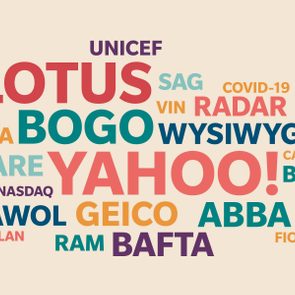Brunch, motel, Pokémon—portmanteau words are everywhere! Here's which of your favorite terms are actually clever word mashups.

18 Portmanteau Words That Will Totally Surprise You

If you’ve ever invited family to brunch (because breakfast is too early, and lunch doesn’t promise mimosas) or gone glamping with your best friends (because full-on camping is a bit too rugged, but you still crave adventure), you’ve used portmanteau words. Of course, you may not have known that’s what they’re called.
So what, exactly, is a portmanteau word? Here’s the official definition from Merriam-Webster: “A word or part of a word made by combining the spellings and meanings of two or more other words or word parts is called a portmanteau word.” In simple terms, a portmanteau is a word made up of other words or word fragments. The new word draws meaning from the words it comes from, creating a term that’s clever and often slang-y—but not always!
Plenty of sneaky portmanteau words fill our daily vocabulary, and many of us don’t even realize the origins of the words. Read on to discover portmanteau words you’ve probably used a hundred times without realizing they’re actually the clever love children of two different words.
Get Reader’s Digest’s Read Up newsletter for more word history, tech, travel, cleaning, humor and fun facts all week long.
Portmanteau
Wouldn’t you know it, a portmanteau is an autological word—a word that describes itself. That is, the word portmanteau is a portmanteau! It comes from the French words porter and manteau, meaning “to carry” and “cloak, coat,” respectively. Neither of those has anything to do with words, but the primary, more literal definition of portmanteau is “a large trunk or suitcase.” The first person to use the word to describe a word was Lewis Carroll, the wordplay-loving author of Alice’s Adventures in Wonderland.
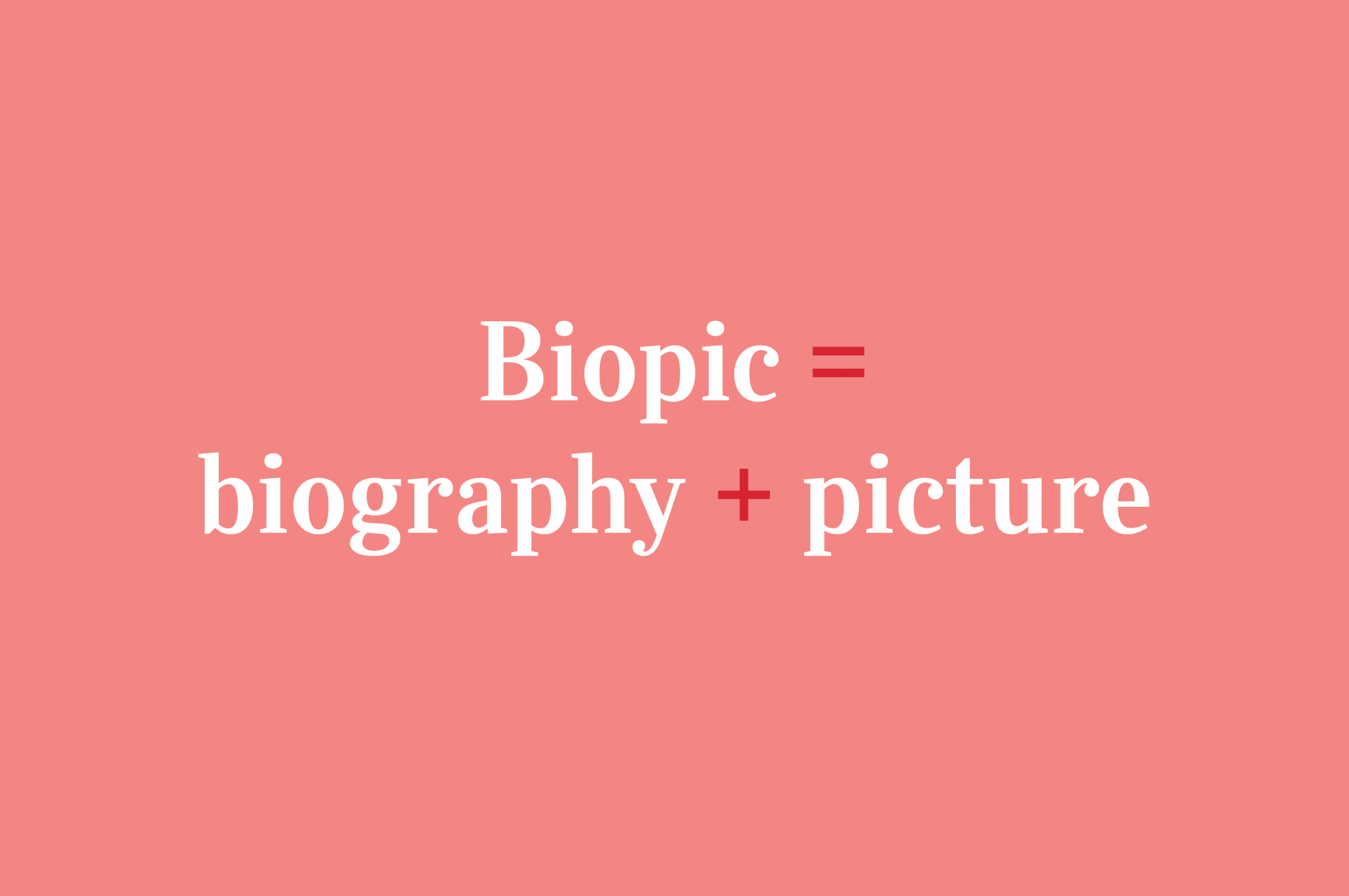
Biopic
Movies based on the true-life stories of notable people are being released pretty regularly these days. When you hear this now-common name for them, it’s easy to forget that it’s a portmanteau of biography, or biographical, and picture (especially since we really don’t call movies “pictures” anymore). We get why this was given the portmanteau treatment; “biographical picture” is a mouthful!
Botox
The name of this common cosmetic injection has an almost branded feel to it, but it’s just a portmanteau of botulinum toxin. That makes sense: The neurotoxin is what relaxes facial muscles to reduce wrinkles.
Brainiac
This is a common word used to describe a super-smart person. The brain bit is obvious, but did it occur to you that the last two syllables derive from maniac? Somebody—or, dare we say, some brainiac—was having some fun with puns here! (Fun fact: The Superman character with the same name came before the common noun.)
Brunch
Brunches have become such a big deal in our culture that it’s easy to forget what a simple, quintessential portmanteau word this is, born from breakfast and lunch. Since the word was formed, the meal has taken on a life of its own. Brunch is no longer a simple between-mealtimes meal—it’s a suitable alternative to breakfast and lunch, a way to spend time with friends and (sometimes) a great excuse to add a little alcohol to the first meal of the day.
Cosplay
A specific type of dress-up where people take on the persona of a fictional character, often for a big event like Comic-Con, the word cosplay comes from costume and role-play.
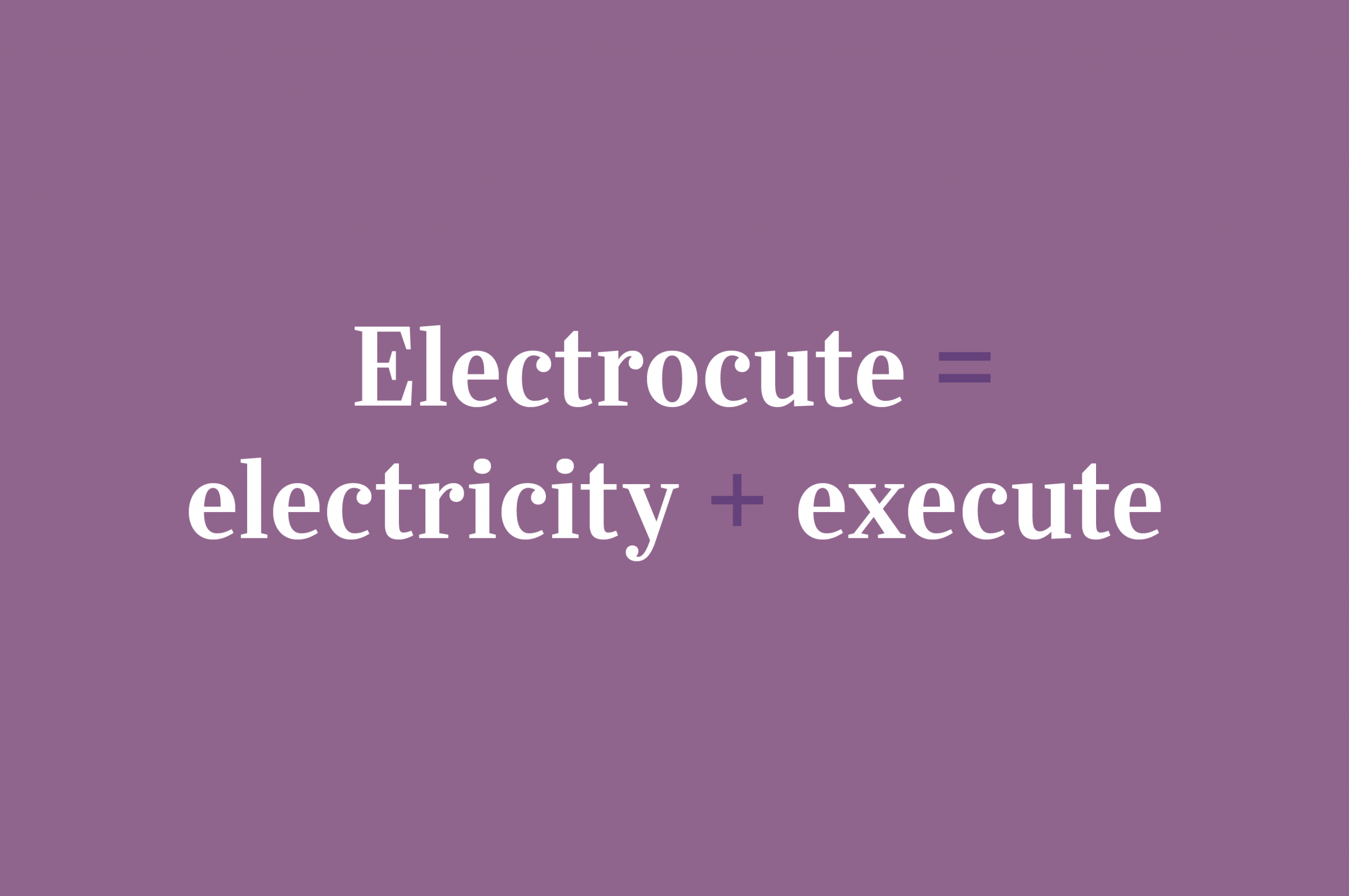
Electrocute
There’s a good chance this word doesn’t mean what you think it does—its true definition has been diluted over time. Electrocute comes from electricity and execute. It specifically denotes death by electric shock. While “injury by electric shock” is a generally accepted meaning these days, it’s not actually correct. According to the original intent of the word, if you experience a strong electric shock and you’re still alive afterward, you technically haven’t been electrocuted.
Gerrymander
This unsavory practice was named, perhaps karmically, for the man under whose tenure it started and, of all things, salamanders. The fifth vice president of the United States was a Democratic-Republican named Elbridge Gerry, who was governor of Massachusetts before becoming VP. In 1812, his administration reorganized the legislative districts, including one in Essex County that resembled a salamander. The Boston Gazette published a cartoon calling it a “Gerry-mander.”
Listicle
This common term for an article, usually online, composed of several items—a list-article, if you will—came into use in 2007 but exploded in popularity in the decades that followed. A portmanteau of (you guessed it) list and article, a listicle offers scannable, bite-sized information, like this listicle of words that are their own opposites.
Motel
You might think that hotel and motel are just words for overnight lodging with arbitrary first letters. While hotel comes from the French hôtel, motel is a 20th-century portmanteau combining the existing hotel with motor. This was in response to the rise in cross-country highways and the need to accommodate roadside travelers.
Newscast
Nope, newscast is not a stand-alone term. It’s a portmanteau word instead! It comes from news and broadcast, and it first popped up around the late 1920s.
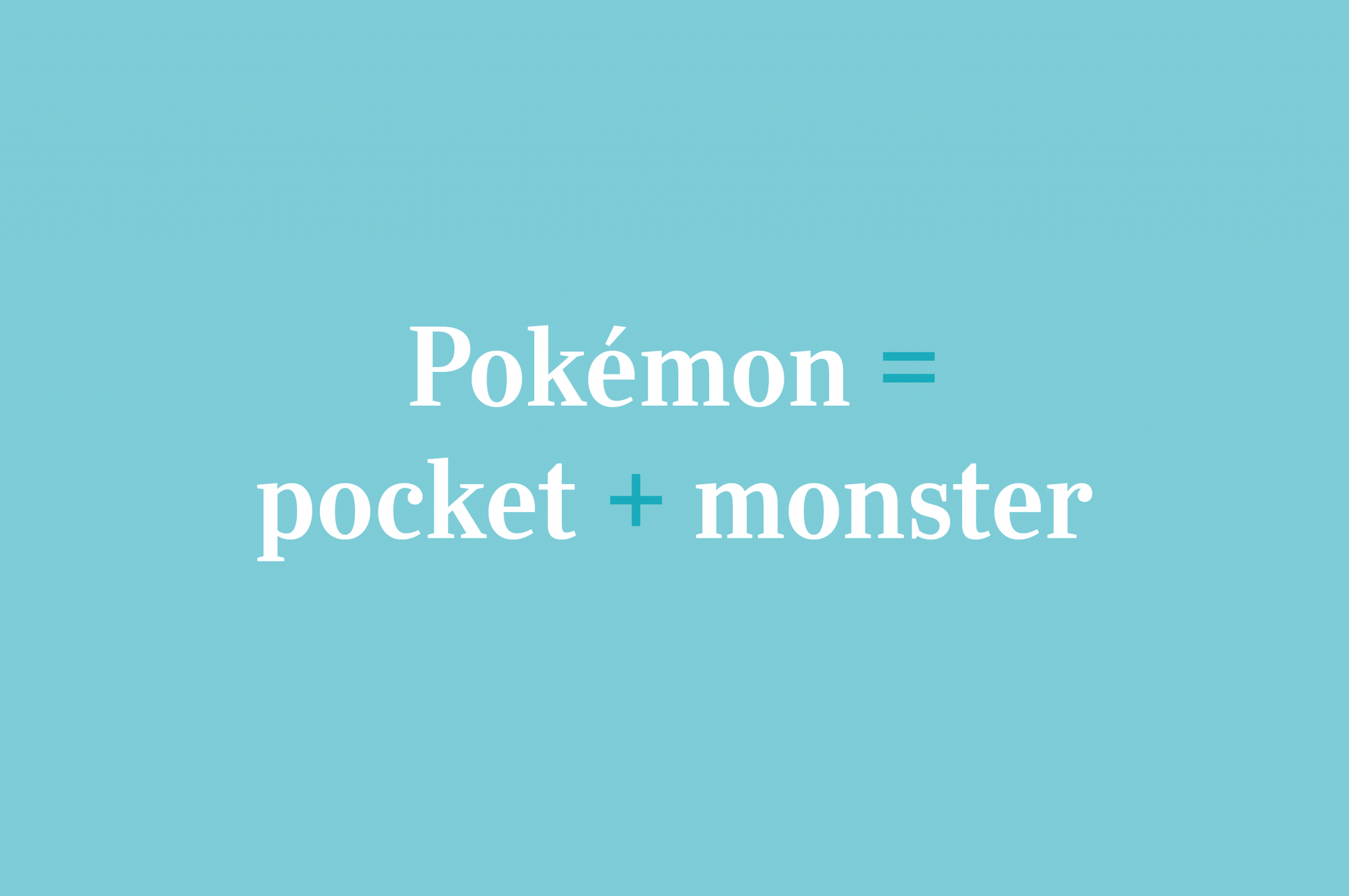
Pokémon
This massively successful video game franchise has a name that’s become ubiquitous, but its origin is delightfully quaint. It’s a combination of pocket and monster. It makes even more sense when you consider that Pokémon trainers are able to summon the creatures from pocket-sized Poké Balls.
Popsicle
Not only is Popsicle a trademarked word, but it’s also a portmanteau. Coined in the 1920s, the word is a combo of pop (as in lolli-, not in reference to the noise or action) and icicle.
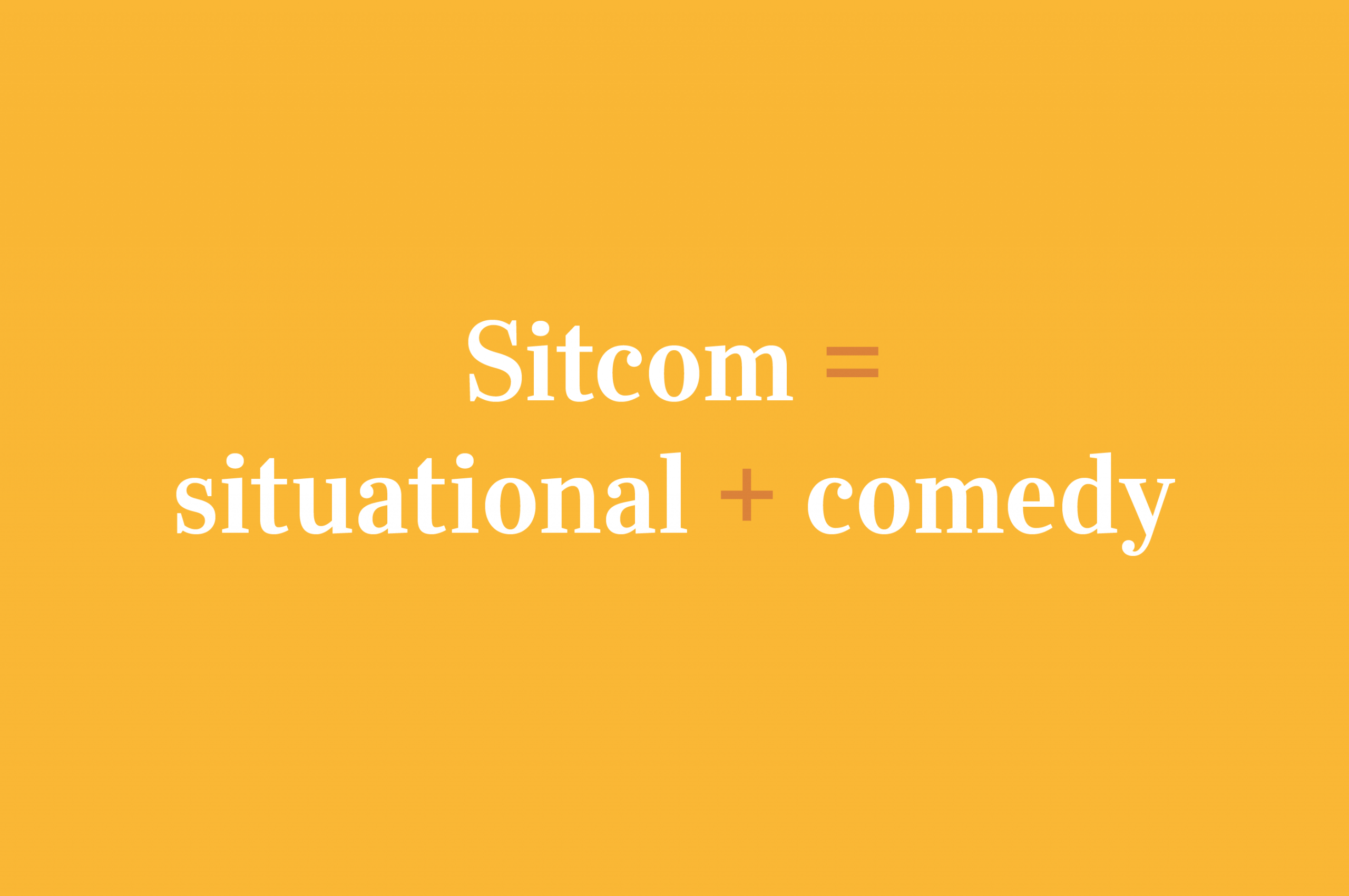
Sitcom
Where are the Abbott Elementary fans? You’d be hard-pressed to find anyone referring to this award-winning show as a situational comedy, but that’s what this very common portmanteau is short for.
Smog
Ooh, a one-syllable portmanteau! Smog refers to a thick, often pollutant-ridden smoky fog. Yup, smog is a combo of smoke and fog! Fun etymologically, not so much in real life.
Splatter
An onomatopoeia that’s fun to say, splatter comes from splash and spatter, and it dates back to 1785. Interestingly, its progenitor, spatter, is a word we tend to use less often than splatter today.
Stash
Whether you use this word as a verb, a noun or both, you may not know the two words it comes from. According to Dictionary.com, stash is a mashup of stow and cache. Since it doesn’t come from cash, it’s interesting that it ended up as stash and not stache—which, of course, is an abbreviation of mustache.
Telethon
Telethons aren’t super common nowadays, but even when they were, you might not have consciously known that the portmanteau word was formed from television and marathon.
Why trust us
At Reader’s Digest, we’re committed to producing high-quality content by writers with expertise and experience in their field in consultation with relevant, qualified experts. We rely on reputable primary sources, including government and professional organizations and academic institutions as well as our writers’ personal experiences where appropriate. We verify all facts and data, back them with credible sourcing and revisit them over time to ensure they remain accurate and up to date. Read more about our team, our contributors and our editorial policies.
Sources:
- Merriam-Webster: “Definition of portmanteau”
- Columbia Journalism Review: “‘Chortle,’ and other words invented by Lewis Carroll”
- Merriam-Webster: “Gerrymander”
- Dictionary.com: “Stash”





















